Strategic pathways toward a credible endgame for Ukraine 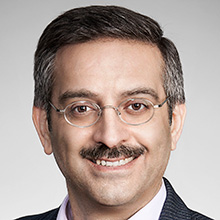 By Elkhan NURIYEV, PhD, Senior Fellow at the Mathias Corvinus Collegium Foundation in Budapest and Senior Fellow at the Alexander von Humboldt Foundation in Berlin By Elkhan NURIYEV, PhD, Senior Fellow at the Mathias Corvinus Collegium Foundation in Budapest and Senior Fellow at the Alexander von Humboldt Foundation in Berlin
Just over two months into U.S. President Donald Trump’s second term, new uncertainties have begun to reshape the West’s approach toward the war in Ukraine. As the conflict grinds through its third year, signs of strategic drift have emerged across Western capitals. With battlefield momentum stalled, political divisions deepening, and public fatigue rising, the West now faces a narrowing window to reassess its goals—or risk drifting toward a scenario of prolonged stalemate and fractured unity. While former president Joe Biden framed the war as a broader fight for democracy and pledged open–ended support to Kyiv, Trump’s foreign policy instincts emphasize burden sharing, cost efficiency, and transactional diplomacy. These principles are already shaping Washington’s posture. Military aid packages have slowed, public rhetoric has shifted toward ending the war “quickly,” and U.S. diplomatic overtures increasingly hint at conditional support rather than blank checks. READ MORE
Conflict in the South Caucasus and the Middle East  By Alan WHITEHORN, Professor Emeritus in Political Science, The Royal Military College of Canada By Alan WHITEHORN, Professor Emeritus in Political Science, The Royal Military College of Canada
Armenia and the South Caucasus were historically parts of the former Soviet Union, and are often considered, in geopolitical terms, to be in the so-called Moscow-influenced “Russia’s near abroad”. It might be useful, however, to recognize the significant connections of the South Caucasus to the Middle East. In fact, Armenia is relatively close geographically (under 1,000 km) to each of the capital cities of Teheran (Iran), Baghdad (Iraq), and Ankara (Turkiye) and not much farther from Israel and Lebanon (under 1,300 km). In terms of international affairs and recent conflict Turkey has been a crucial military ally of Azerbaijan during the latter’s wars with Armenia and Nagorno-Karabakh (Artsakh) in 2020 and 2023. A lesser-known fact is that, over the previous decade, Israel has been a major weapons’ supplier of Azerbaijan, particularly advanced drones that proved critical for Baku’s swift and decisive victory in the 2020 Armenia-Azerbaijan war, and its 2023 recapture of Nagorno-Karabakh, which displaced over 100,000 civilians, virtually all of the local Armenian population. READ MORE
What Is at Stake in the Tavush Region?  By Benyamin POGHOSYAN, PhD, Chairman, Center for Political and Economic Strategic Studies By Benyamin POGHOSYAN, PhD, Chairman, Center for Political and Economic Strategic Studies
Since Prime Minister Nikol Pashinyan’s March 18 visit to Voskepar and Kiranc villages in the Tavush region, discussions and debates have been underway in Armenia on the situation along the Armenia – Azerbaijan border in that region. The visit took place after the statement of the office of Azerbaijan’s Deputy Prime Minister Shahin Mustafayev, demanding the immediate return of “four non-enclave Azerbaijani villages’” located in Tavush along the Armenia – Azerbaijan border to Azerbaijan which were in principle covered in the demarcation and delimitation negotiations. During his meetings with villagers, the Armenian prime minister stated that “the process of delimitation and demarcation between Armenia and Azerbaijan was entering the practical stage.” Despite acknowledging that there were no agreements on maps and principles of the process and that Azerbaijan would not leave the Armenian territories currently under its control, the prime minister argued for withdrawing from those villages to avoid a new war. After these meetings, some representatives of the Armenian leadership, including the speaker of the National Assembly, started to state that those territories were not part of Armenia and should be returned to Azerbaijan.
READ MORE
Proprietary rights will be guaranteed in Uzbekistan 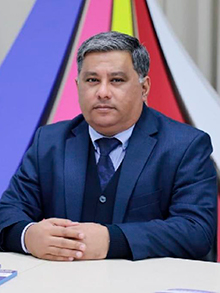 Avazbek Kholbekov, expert of the Development Strategy Center Avazbek Kholbekov, expert of the Development Strategy Center
Over the past five years in Uzbekistan, a number of laws have been adopted in our country to ensure the priority of private property and strengthen its legal protection.
Most importantly, based on the principle of "From Action Strategy to Development Strategy" there was adopted the "Development Strategy of New Uzbekistan for 2022-2026", as a logical continuation of Action Strategy. In the document, turning the principles of justice and the rule of law into the most basic and necessary condition for development in the country was defined as one of the most important directions. Several necessary objectives were envisaged for this.
READ MORE
How the Hamas-Israel War Impacts the South Caucasus
 By Fuad SHAHBAZOV, Baku-based independent regional security and defence analyst By Fuad SHAHBAZOV, Baku-based independent regional security and defence analyst
The war between Hamas and Israel war has triggered strong anti-Israel sentiments in the region and heightened fears of a broader conflict engulfing actors such as Egypt, Iran, Jordan, Lebanon, and Turkey. Worried that the conflict in Gaza could escalate into a regional confrontation, the US has dispatched two aircraft carrier strike groups within range, including additional troops and military advisors.
But alongside tough rhetoric, the violence in Gaza has renewed apparent pragmatism by important regional states such as Iran and Turkey. Turkish President Recep Tayyip Erdogan has openly slammed Israel's bombings of the Palestinian coastal enclave. On the other hand, Ankara has avoided issuing direct threats against Tel Aviv and, in an apparent unusual move, allegedly distanced itself from Hamas in the aftermath of the Palestinian movement’s surprise attack on Israel last month.
READ MORE
Statement on the Fresh Violence in Nagorno-Karabakh 
Taking into account the latest media reports on the new outbreak of hostilities on the Line of Contact in Karabakh (called Artsakh in Armenian) between local Armenian forces and the Azerbaijani military, I am gravely concerned about the loss of life and the indiscriminate destruction of civilian assets. As the Founder of the European Geopolitical Forum, an organisation which embraces peaceful means of conflict resolution, and which has been actively involved in finding a reasonable, sound and long-term solution to the conflict in Nagorno-Karabakh for some ten years, I call for an immediate end to all hostilities and a swift return of the parties to the negotiation table. I am encouraged by the breaking news of a Russian-mediated ceasefire. I call for the immediate, non-conditional resumption of the internationally mediated dialogue between Baku and representatives of the population of Nagorno-Karabakh. I also call on the Russian Federation, the United States and the European Union to actively demand peaceful settlement of the Karabakh conflict and to ensure that the ceasefire is respected without any form of deviation.
Dr Marat Terterov,
Founder, European Geopolitical Forum
- November 28, 2023 07:42AM
How the Military Escalation in Gaza Could Impact the South Caucasus  By Yeghia TASHJIAN, Beirut-based regional analyst and researcher, columnist, "The Armenian Weekly” By Yeghia TASHJIAN, Beirut-based regional analyst and researcher, columnist, "The Armenian Weekly”
On October 7, 2023, Palestinian Islamist militant group Hamas launched operation “Al-Aqsa Flood,” aiming to destroy the Israeli army positions near Gaza and capture as many soldiers as possible, in order to exchange them with the almost 7,000 Palestinians detained in Israeli prisons. The operation created a shockwave in Israeli society, killing more than 1,000 soldiers and civilians. As a result, Israelis started indiscriminately bombing Gaza, killing civilians and threatening ethnic cleansing through a land invasion. The danger that the escalation will turn into a regional conflict involving Iran and Hezbollah is high. Such a step would surely have devastating consequences for the region and a domino effect beyond the Middle East. If Israel, which is Azerbaijan’s military partner and Iran’s regional enemy, was involved in a war of attrition in Gaza or a regional escalation, it would become isolated from the events in the South Caucasus.
READ MORE
Georgia is Losing, and Losing Badly 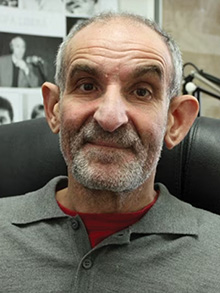 Interview by “Georgia Today” with Eugene KOGAN, Tbilisi-based defence and security expert Interview by “Georgia Today” with Eugene KOGAN, Tbilisi-based defence and security expert
Georgia is not ready to defend itself if Moscow decides to invade again. And this is a very big weakness, one which should have been solved years ago and remains unresolved to this day…In Georgia, they don’t bother to ask themselves difficult questions…it’s something Georgian politicians seem to be averse to – Eugene Kogan, a researcher at the Vienna Institute of International Politics, an expert on defence and security issues in Eastern Europe and the Middle East, who has been living in Georgia for the past 10 years, told RFE/RL’s Georgian Service. We spoke to him about the role of Georgia in the region, territorial integrity, Karabakh, and the new war in the Middle East. We started with the Israel-Hamas conflict. READ MORE
Azerbaijan Moves to Disarm Karabakh Separatists (Part Two)  By Vasif HUSEYNOV, PhD, Head of Department, AIR Center, Adjunct Lecturer, ADA and Khazar Universities, Baku By Vasif HUSEYNOV, PhD, Head of Department, AIR Center, Adjunct Lecturer, ADA and Khazar Universities, Baku
On September 20, Azerbaijan called for a ceasefire in the operation against armed detachments of the separatist regime in Karabakh. In a televised address to the nation, President Ilham Aliyev stated that Baku’s conditions were accepted by the separatist entity. He announced that the “representatives of the Armenian community living in Karabakh, who refused to meet our representatives several months ago, are ready to meet in the city of Yevlakh. Azerbaijan has disclosed that 192 servicemen were killed and more than 500 wounded during the 24-hour “anti-terrorist operation”. The Armenian side has reported at least 200 people killed and more than 400 wounded.
In preventing further escalation, the Armenian government chose not to militarily intervene in the clashes on September 19 and 20. Armenian Prime Minister Nikol Pashinyan characterized possible involvement as a threat to his country. He stated, “Armenia is not involved in military operations. I want to mention once again that Armenia does not have an army in Nagorno-Karabakh”.
READ MORE
What Next in Nagorno Karabakh  By Benyamin POGHOSYAN, PhD, Chairman, Center for Political and Economic Strategic Studies By Benyamin POGHOSYAN, PhD, Chairman, Center for Political and Economic Strategic Studies
On September 19, Azerbaijan launched a large-scale offensive against the self-declared Nagorno Karabakh Republic with only one goal: to finish with that republic. The Azerbaijani attack was not a surprise to anyone. At least since the beginning of 2023, Azerbaijan has stated clearly and loudly that Baku will not tolerate the status quo that emerged after the 2020 Nagorno Karabakh war and will do everything possible to destroy the Nagorno Karabakh Republic. Azerbaijan was also clear that it would reach its goal quickly. Since the beginning of September 2023, as Azerbaijan started to concentrate troops along the line of contact, it was clear the military offensive would take place very soon. Armenia knew that Russia knew that, the EU and the US knew that, and Nagorno Karabakh authorities knew that. What were the positions of the sides regarding the upcoming offensive of Azerbaijan?
READ MORE
What does ISIS’s revival mean for the South Caucasus?  By Yeghia TASHJIAN, Beirut-based regional analyst and researcher, columnist, "The Armenian Weekly” By Yeghia TASHJIAN, Beirut-based regional analyst and researcher, columnist, "The Armenian Weekly”
The socio-economic crisis was one of the causes of the disintegration of centralized governments in Syria and Iraq in 2011 and the emergence of radical militants in rural areas. These militants were motivated by anger towards the urban elite, who for decades neglected rural areas. As civil wars and political instability hit Syria and Iraq, many young rural people were recruited by these groups, who were financed by regional countries or non-state actors. In 2013, the Islamic State of Iraq and Syria (ISIS) was founded with the aim to establish an Islamic kingdom (caliphate) in the region. […] After the dissolution of ISIS in late 2019, the movement went underground, yet today it is taking advantage of the financial crisis in Syria and making a comeback.
READ MORE
- September 25, 2023 22:50PM
The History and Evolution of Iran’s National Drone Program
 By Fuad SHAHBAZOV, Baku-based independent regional security and defence analyst By Fuad SHAHBAZOV, Baku-based independent regional security and defence analyst
Russia’s invasion of Ukraine launched in early 2022 has fundamentally changed the international security architecture that had existed for many years, but it has also caused global political and economic cataclysms. Although Russian forces made significant gains thanks to heavy artillery fire, including missile strikes on cities all over Ukraine in the first weeks of combat, Ukrainian defenders quickly rebuffed attempts by consolidating its military power, exercising diplomatic connections, and launching counterattacks at Russian positions. The failures of continuous artillery and missile strikes in the following months prompted Russia to make some changes in its military tactics. As a result, Russia was forced to seek help from its traditional allies China and Iran through unofficial channels. Although China has refrained from overtly providing military support to Russia in order not to further complicate relations with Western countries, particularly with the United States, Iran began supplying locally produced long-range attack (suicide) drones to Russia. READ MORE
Diversification of Armenian Security and Defence Policy and the Role of India  By Benyamin POGHOSYAN, PhD, Chairman, Center for Political and Economic Strategic Studies By Benyamin POGHOSYAN, PhD, Chairman, Center for Political and Economic Strategic Studies
The 2020 Nagorno Karabakh war has significantly changed the balance of power in the South Caucasus, increasing the role and influence of Turkey. The direct involvement of Turkey in the war and the lack of action by Russia to prevent this NATO member state from challenging the Russian zone of influence in the post-Soviet space crushed the basics of the Armenian foreign and security policy. Since the end of the first Nagorno Karabakh war in 1994, Armenian military doctrine has been based on the core belief that Russia will not allow direct Turkish involvement in a new war against Armenia. Thus, Armenia prepared itself for the war with Azerbaijan while outsourcing to Russia the deterrence of Turkey. Meanwhile, this mindset also resulted in a Russia-focused defence and security policy. Armenia was buying weapons mainly from Russia, almost all Armenian officers were studying in Russian military universities, and the structure and operating mode of the Armenian army was solely based on the Russian model. Armenia developed limited defence cooperation with other nations, including the US, Greece, and Poland, and signed its first Individual Partnership Action Plan with NATO in 2005. However, these sporadic interactions did not change the basics of Russia-focused foreign and military policy. READ MORE
A Long-Term International Presence in Nagorno-Karabakh Is Needed  By Benyamin POGHOSYAN, PhD, Chairman, Center for Political and Economic Strategic Studies By Benyamin POGHOSYAN, PhD, Chairman, Center for Political and Economic Strategic Studies
Nagorno Karabakh's future is the most challenging question that Armenia and Azerbaijan face as they seek to move towards the normalisation of relations between them.
Since the 2020 Nagorno Karabakh war ended, Armenia and Azerbaijan have launched multi-track negotiations to sign a peace treaty. In 2021 the primary platform for negotiations was Russia, and in 2022 the EU and the US joined the club. Armenia and Azerbaijan discuss several separate but intertwined issues – the signature of the peace treaty, delimitation and demarcation of borders, restoration of communications, and the future of Nagorno Karabakh. All issues are pretty complicated, but Nagorno Karabakh's future is the most challenging question. There are different approaches how to deal with this issue. One approach argues for the inclusion of Nagorno Karabakh in the bilateral peace treaty, while according to another view, the Nagorno Karabakh issue should be separated from discussions on Armenia - Azerbaijan relations. READ MORE
No Peace Should not Mean War  By Benyamin POGHOSYAN, PhD, Chairman, Center for Political and Economic Strategic Studies By Benyamin POGHOSYAN, PhD, Chairman, Center for Political and Economic Strategic Studies
The developments of the last three weeks have proved that Armenia and Azerbaijan are far from signing a peace agreement, at least by the end of 2022. There is a danger that Azerbaijan may interpret this as a failure of the peace process and use this as a "moral justification" to launch a new large-scale aggression. If this happens, it will push Armenia and Azerbaijan further back from any chance to reach an agreement and deepen the mutual mistrust.
In recent months Armenia – Azerbaijan negotiation process passed through several ups and downs. The September 13-14, 2022, Azerbaijani aggression seemed to jeopardize the fragile achievements reached during the three Brussel summits held in April, May, and August 2022. However, immediately after the ceasefire reached on September 14, there was a new push toward reaching a peace agreement. Armenian and Azerbaijani foreign ministers met in New York in late September and Geneva on October 2; Secretary of the Armenian Security Council Armen Grigoryan had a meeting with President Aliyev’s top foreign policy aide Hikmet Hajiyev in Washington on September 27, 2022. READ MORE
- December 13, 2022 05:37AM
The Geopolitical Background of Azerbaijan’s Aggression on Armenia  By Yeghia TASHJIAN, Beirut-based regional analyst and researcher, columnist, "The Armenian Weekly” By Yeghia TASHJIAN, Beirut-based regional analyst and researcher, columnist, "The Armenian Weekly”
Last week’s aggression by Azerbaijan on Armenia should be viewed from a regional lens, as the conflict imposes a new geopolitical reality not only on Armenia, but also Iran and the wider South Caucasus.
On September 10, 2022, the Defence Minister of Azerbaijan instructed his army to maintain combat readiness to “suppress any Armenian provocations.” Not surprisingly, three days later, Baku launched a full-scale aggression on Armenia’s eastern border, concentrating on Jermuk and using special forces, Israeli and Turkish-made drones and artillery strikes against military and civilian targets. Consequently, Azerbaijan occupied strategic positions near the border, exerting pressure on Armenia’s narrow southern region. The aim of this military operation was to enter Jermuk and force the authorities of Yerevan into another “capitulation.” READ MORE
Do Armenia and Azerbaijan Move to Peace?  By Benyamin POGHOSYAN, PhD, Chairman, Center for Political and Economic Strategic Studies By Benyamin POGHOSYAN, PhD, Chairman, Center for Political and Economic Strategic Studies
In recent months, some positive momentum was registered in Armenia-Azerbaijan talks. The sides established national commissions on border delimitation and demarcation, and after a six-months break, the trilateral Armenia-Russia-Azerbaijan commission on restoration of communication resumed its work. According to Russian sources, later confirmed by the Armenian deputy prime minister, the sides achieved significant progress in the negotiations, almost reaching an agreement on the route of the highway, which will connect Azerbaijan with Nakhichevan via the Syunik region of Armenia, as well as on modalities of border and customs control. The agreement to open the Armenia-Turkey land border for the crossing of third country citizens and launch direct air cargo trade between the two countries, achieved during the July 1 meeting of Armenia and Turkey representatives, seemed to add a more positive environment in the South Caucasus geopolitics. READ MORE
Iran and the Second Karabakh War: Assessing the New Balance of Power in the South Caucasus
 By Fuad SHAHBAZOV, Baku-based independent regional security and defence analyst By Fuad SHAHBAZOV, Baku-based independent regional security and defence analyst
The second Karabakh war between Azerbaijan and Armenia in September of 2020 opened a new page in the modern history of the post-Soviet region and explicitly changed the geopolitical landscape in the South Caucasus. With Baku regaining control over large swathes of territories, Turkey has obtained a greater role in the region, acting as a guarantor of the ceasefire regime between Azerbaijan-Armenia alongside Russia, whereas Iran’s diminished position has gotten less attention. Indeed, in the post-war period, Tehran saw a steep decline in its regional influence in the Southern Caucasus, losing its direct land route to Armenia and facing the growing influence of Russia, Israel, and Turkey. Prior to the conflict, Iran had long pursued a balanced foreign policy in the region, developing a partnership with Armenia and Azerbaijan, respectively. However, Turkey’s close relations with Azerbaijan since the 1990s prevented Iran from establishing powerful leverage over this country, unlike landlocked Armenia, which has relied on Iran as one of the main economic partners. READ MORE
A Path to a Peace Agreement between Armenia and Azerbaijan  By Benyamin POGHOSYAN, PhD, Chairman, Center for Political and Economic Strategic Studies By Benyamin POGHOSYAN, PhD, Chairman, Center for Political and Economic Strategic Studies
While the world continues to follow the war in Ukraine and the growing tensions in relations between Russia and the West, Armenia and Azerbaijan are ready to launch negotiations to sign a peace treaty. All external powers involved in the region’s geopolitics – Russia, the US, the EU, Turkey, and Iran – support this process. Armenia and Azerbaijan will soon launch three separate, though interconnected, processes: the start of the work of the bilateral border delimitation and demarcation commission, the restoration of communications infrastructure, and the launch of negotiations on a peace treaty. These issues are discussed on two parallel platforms – Armenia-Azerbaijan-EU and Armenia-Azerbaijan-Russia. Both Russia and the EU support the start of work on all three tracks. READ MORE
What is Next in Ukraine  By Benyamin POGHOSYAN, PhD, Chairman, Center for Political and Economic Strategic Studies By Benyamin POGHOSYAN, PhD, Chairman, Center for Political and Economic Strategic Studies
As large-scale hostilities continue in Ukraine, politicians, geopolitical experts and international media outlets seek to assess the outcomes and implications of the conflict. When Russia launched its “special military operation” on February 24, the widespread assumption was that Russia planned a blitzkrieg to take major Ukrainian cities within days or maximum weeks. The narrative changed as the first week of hostilities passed with no significant Russian successes. Experts and commentators started to claim that the Russian plan failed due to miscalculations and stiff resistance of the Ukrainians. According to these assessments, Russian President Vladimir Putin was misinformed by his advisors and generals, who promised him that many Ukrainians would meet Russian troops with flowers and that the “special military operation” would be an “easy evening walk.” According to this narrative, facing a different reality, at the beginning of March 2022, Putin started to look for ways out of the mess hastily and end the war. READ MORE
Armenia's Options in the Face of Coercive Azerbaijani Tactics Are Limited  By Benyamin Poghosyan, PhD, Chairman, Center for Political and Economic Strategic Studies By Benyamin Poghosyan, PhD, Chairman, Center for Political and Economic Strategic Studies
The developments of the last year proved that assessments according to which by taking some 8500 square km of territories in the 2020 Karabakh war, Azerbaijan will be satisfied and an era of peaceful development will be launched for Armenians, were highly exaggerated, and had little semblance to reality.
Since the end of the 2020 Karabakh war, Armenia has faced a new, harsh reality along its borders with Azerbaijan. Some in Armenia hoped that after taking back most of the territories which Baku lost during the first Karabakh war of 1992-1994, an era of regional peace would start in the South Caucasus, while Azerbaijan would agree to continue negotiations to fix the status of Nagorno Karabakh within its 1988 borders. Baku was quite quick to dampen such perceptions. Azerbaijan established an economic region of Karabakh in July 2021 and started to aggressively push forward the narrative that war had ended not only the conflict, but Nagorno Karabakh itself, and thus it was senseless to negotiate over the status of a non-existing entity. READ MORE
Azerbaijan-Armenia Border Dispute – Could the Conflict Re-escalate?  By Fuad Shahbazov, Baku-based independent regional security and defence analyst By Fuad Shahbazov, Baku-based independent regional security and defence analyst
Half a year after the Russian-brokered ceasefire agreement was signed between Azerbaijan and Armenia ending the 44-day war in Karabakh, peace in the complex region is not on the horizon. A new stage of discontent and harsh statements came last week after Azerbaijani Armed Forces reportedly crossed the border with Armenia in the Syunik province and advanced around 3 kilometres by Sev Lake. Yerevan dubbed this action as an explicit provocation and an attempt to occupy Armenian territory, whereas Baku denied the accusations, stating that Azerbaijani border guards established a military control point at the heights around the lake without advancing into Armenian territories. READ MORE
- September 14, 2021 19:40PM
Israeli-Greek Naval, Air Force and Defence Industry Cooperation 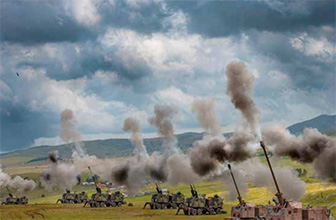 By Eugene Kogan, Tbilisi-based defence and security expert By Eugene Kogan, Tbilisi-based defence and security expert
The bilateral Israeli-Greek military and defence industry cooperation was not created in a vacuum, but is a by-product of the steadily deteriorating Israeli-Turkish relations which include two important events: the famous World Economic Forum incident in Davos on January 29th, 2009 and the Mavi Marmara incident on May 31st, 2010. The Davos incident was further aggravated by the Mavi Marmara incident, which left ten Turkish citizens dead after clashing with Israeli commandos as the latter boarded the ship which was trying to break the Gaza blockade. Moreover, the military component of Israeli-Turkish relations, which used to be the backbone of the relations, is still missing and is unlikely to reappear in the near future. READ MORE.
Russia’s Peace Mission in Karabakh Provokes Reaction in Azerbaijan  By Fuad Shahbazov, Baku-based independent regional security and defence analyst By Fuad Shahbazov, Baku-based independent regional security and defence analyst
As part of the 10 November ceasefire agreement that ended last year's 44-day war, a contingent of Russian soldiers was deployed to Karabakh as peacekeepers. However, the lack of a formally agreed mandate and perceptions of Russian overstepping has led to growing tensions between Baku and Moscow.
The second Karabakh war ended with the signing of a Russia-brokered ceasefire agreement and the deployment of Russian peacekeeping forces with the aim of preventing further hostilities and ensuring stability in the region. However, the ceasefire arrangements between Azerbaijan–Armenia on one side and Russia–Turkey on the other has left more questions than answers. The fact that there is still no formally agreed mandate for the Russian forces operating on the ground causes outrage in Azerbaijan as local authorities loudly criticise Moscow for provocative actions. READ MORE
Russian Strategy Before and During the New Karabakh War  By Benyamin Poghosyan, PhD, Chairman, Center for Political and Economic Strategic Studies By Benyamin Poghosyan, PhD, Chairman, Center for Political and Economic Strategic Studies
The new war against the unrecognized Nagorno Karabakh Republic launched by Azerbaijan on September 27, 2020, has intensified discussions among the experts on the role of the external actors in the region. Significant attention was focused on the newly gained influence of Turkey as a supporter of Azerbaijan. However, as for now, the key player in the Karabakh conflict remains Russia, and most probably, this balance will not be changed at least in the short term perspective. READ MORE
- November 10, 2020 05:19AM
Escalation on the border between Armenia and Azerbaijan: Possible reasons and implications  By Khayal Iskandarov Ibrahim, PhD, and Associate Professor Sadi Sadiyev Saleh, War College of the Armed Forces, Republic of Azerbaijan By Khayal Iskandarov Ibrahim, PhD, and Associate Professor Sadi Sadiyev Saleh, War College of the Armed Forces, Republic of Azerbaijan
In July 2020, the most recent escalation on the border between Armenia and Azerbaijan brought the so-called “frozen” Nagorno-Karabakh conflict to the spotlight again. However, this time the skirmish occurred not in Nagorno-Karabakh, the occupied territory of Azerbaijan, but in another area, which is an official border far away from Nagorno-Karabakh. The first question which comes to mind is: Why Tovuz, and not Nagorno-Karabakh? READ MORE.
India Wins Defence Deal with Armenia  By Fuad Shahbazov, Baku-based independent regional security and defence analyst By Fuad Shahbazov, Baku-based independent regional security and defence analyst
On March 1, 2020, India outperformed Russia and Poland in a US$ 40 million defense deal with Armenia to supply it with four domestically made SWATHI counter-battery radars. The system is developed by India’s Defence Research and Development Organization (DRDO) and manufactured by Bharat Electronics Limited (BEL). It provides accurate information on enemy artillery firing positions weapons up to 75 kilometers away. The decision came amid India’s growing efforts to boost its national “Make in India” brand in the defense industry sector, which could make new inroads into European, Middle Eastern and Asian defense markets. However, the new Indian – Armenian defense deal could undermine Delhi’s relations with Russia on the one hand, and Azerbaijan, Turkey and Pakistan on the other. READ MORE
Armenia and Azerbaijan: What’s Next After Bratislava?  By Benyamin Poghosyan, PhD, Executive Director, Political Science Association of Armenia By Benyamin Poghosyan, PhD, Executive Director, Political Science Association of Armenia
On December 4, 2019, Armenian and Azerbaijani foreign ministers held their last meeting for this year on the margins of the OSCE Ministerial Conference in Bratislava. According to Armenian and Azerbaijani sources, the current stage of negotiations, the necessity of ceasefire consolidation and the implementation of confidence-building measures were among the key topics of discussion. The Foreign Minister of Armenia highlighted the modest achievement reached within the framework of the agreement on preparing the populations for peace, through the implementation of an exchange program for media representatives from Armenia, Artsakh and Azerbaijan. READ MORE
- December 16, 2019 22:07PM
Turkey’s Incursion into Syria: What Lessons Should Armenia Take?  By Benyamin Poghosyan, PhD, Executive Director, Political Science Association of Armenia By Benyamin Poghosyan, PhD, Executive Director, Political Science Association of Armenia
The eight and half years of Syrian conflict saw various, sometimes very strange, ups and downs. Everything started as an uprising against the authoritarian state with demands for democratic reforms. Later the situation transformed into civil war with growing influence of foreign fighters. In 2014, the Islamic State entered the stage making President Assad less evil for the West. Then Russia intervened militarily and changed the course of the war effectively saving Assad. In 2016 and 2018 Turkey launched two military operations taking under control parts of North-Western Syria. READ MORE
Can Azerbaijan Afford a Change of Format in the Peaceful Resolution of the Nagorno-Karabakh Conflict?  By Eduard Abrahamyan, Wider Black Sea & Central Asia regional security analyst
By Eduard Abrahamyan, Wider Black Sea & Central Asia regional security analyst
While the standoff between adversaries rages on, recent weeks saw an intensified communication between American and Russian high-level officials over the wide array of issues on which Moscow and Washington have contrasting views. On May 14, U.S. Secretary of State Mike Pompeo met with his Russian counterpart, Foreign Minister Sergey Lavrov, and later with President Vladimir Putin in the Russian Black Sea city of Sochi. READ MORE
Uncertainties and Weaknesses in International Security Around the Black Sea Region  By Eugene Kogan, Tbilisi-based defence and security expert By Eugene Kogan, Tbilisi-based defence and security expert
It can be ascertained that until the Russian illegal annexation of Crimea, in March 2014, the Black Sea Region was perceived as a region with certain problems, but certainly not of a military nature. As a result, this region was neither high on the international community agenda nor on the radar screen of the NATO member states, and that despite membership of Bulgaria, Romania and Turkey in NATO. Furthermore, Prime Minister Recep Tayyip Erdogan and his government thought back in 2014 that they were capable to handle President Vladimir Putin’s Russia single-handed, NATO assistance was not required, and non-NATO members such as Georgia and Ukraine should not be involved. READ MORE
- February 18, 2019 21:43PM
Armenia’s Unique Geopolitical Reality: An Asset for NATO’s Stability Projection Southwards 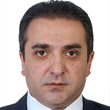 By Vahagn AFYAN, Deputy head of Mission, Embassy of the Republic of Armenia to Poland By Vahagn AFYAN, Deputy head of Mission, Embassy of the Republic of Armenia to Poland
How can Armenia’s geopolitical context contribute to stability in its immediate vicinity and in NATO’s Southern Neighbourhood?
This paper will consider Armenia’s geopolitical location from the perspective of NATO’s Southern neighbourhood and examine its cohesion, dependability and potential contribution to NATO’s intended task of projecting stability. With regard to NATO and its relationship with Armenia, the first step is to create a better understanding of the particularities of the country and its policy. Increased knowledge of the ongoing integration processes affecting various political, economic and military aspects, as well as internal political developments, will allow a full exploration of the potential for strategic partnership between the Alliance and Armenia. READ MORE
- December 21, 2018 21:49PM
The Realities Against Armenia’s "Nagorno-Karabakh Strategy of Pre-emption"  By professor Sadi Sadiyev Saleh, War College of the Armed Forces, Republic of Azerbaijan By professor Sadi Sadiyev Saleh, War College of the Armed Forces, Republic of Azerbaijan
An Armenian author, Benyamin Poghosyan, blamed Azerbaijan for lingering Nagorno-Karabach conflict in his recently published paper on “Armenia’s Karabakh Strategy, from Status Quo to Pre-emption”. It is abundantly clear that he hadn’t referred to any legal or reliable documents when he developed that paper. In order to come to grips with this issue we should hark back to the origin of the conflict. We will be focusing on three stages to let you digest the whole information: Where did this issue emanate from? What is the current situation? What are the prospects of future detente? READ MORE
- December 11, 2018 06:39AM
Russian Aerospace Forces and the Syria Campaign: An Assessment 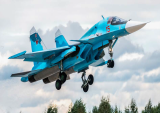 By Eugene Kogan, Tbilisi-based defence and security expert By Eugene Kogan, Tbilisi-based defence and security expert
There is no doubt whatsoever that the lion’s share of the Russian defence budget funds for the years 2011–20 was allocated to the Aerospace Forces (VKS – Vozdushno-Kosmicheskiye Sily) namely, RUR4 trillion out of total RUR19 trillion 1 (or 21 per cent of budget sum US$ 337 billion). The level of financial allocations clearly highlighted the armed forces priority in the eyes of President Vladimir Putin and the top military brass. The forces proved to be a crucial tool in the hands of President Putin and the military establishment. And the VKS continue to play an important role in President Putin’s overall military strategy in particular after a successful operation in Syria. READ MORE
- September 10, 2018 18:12PM
What Next in Iran?  By Benyamin Poghosyan, PhD, Executive Director, Political Science Association of Armenia By Benyamin Poghosyan, PhD, Executive Director, Political Science Association of Armenia
On May 8, US President Donald Trump made the decision to pull the US out of the Iran nuclear deal (JCPOA). This was done despite all efforts of European leaders to convince Trump to stay in. The President of France and German Chancellor Merkel visited Washington late April and UK Foreign Secretary Johnson was in DC on May 6-7. However, all failed to reach an agreement with the US President. READ MORE
Russian-Iranian Relations: A Mixed Bag 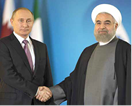 By Eugene Kogan, Tbilisi-based defence and security expert By Eugene Kogan, Tbilisi-based defence and security expert
The declaration that Russia and Iran are strategic partners lacks both solid foundation and strategic perspective.
Despite the sense of urgency generated by regional and global concerns, Russia and Iran have failed to establish broad-based economic, scientific, technical, educational and societal ties. In terms of arms exports, Russia still sees Iran as a customer, while Iran is doing its best to distance itself from Russia and to become self-reliant; Iran has recently turned to China in order to diversify its weapons imports away from Russia. Whether this divergence will continue remains to be seen. READ MORE
The New End Game (Part 2)  By Mehmood-Ul-Hassan Khan, EGF Affiliated Expert
By Mehmood-Ul-Hassan Khan, EGF Affiliated Expert
President Donald Trump has announced his most controversial “Afghan Policy” by blaming Pakistan for the strategic failure of his country in Afghanistan. He called Pakistan the only “destabilizing factor” for its “untamed militarization” of Afghanistan since 2001, by allegedly supporting, nurturing and financing terrorist groups. The new US Afghan Policy has also started a new end game in the region with prospective spill-over socio-economic, geopolitical and geo-strategic repercussions. READ MORE
Georgian Military Modernisation: Two Steps Forward, One Step Back 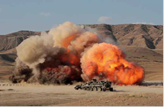 By Eugene Kogan, Tbilisi-based defence and security expert By Eugene Kogan, Tbilisi-based defence and security expert
At a press conference on 7 November 2016, Georgia’s minister of defence Levan Izoria announced plans to reform the country's armed forces, air force and air defence, but concluded that the construction of a new naval capacity was too costly. The Navy was disbanded in 2009 and merged with the Coast Guard, which is part of the Border Guard Division and reports to the Ministry of the Interior (MIA). It should also be emphasised that Izoria's reform plans were not the first and probably will not be the last ones. READ MORE
Turkey's Relations with and Relevance for NATO
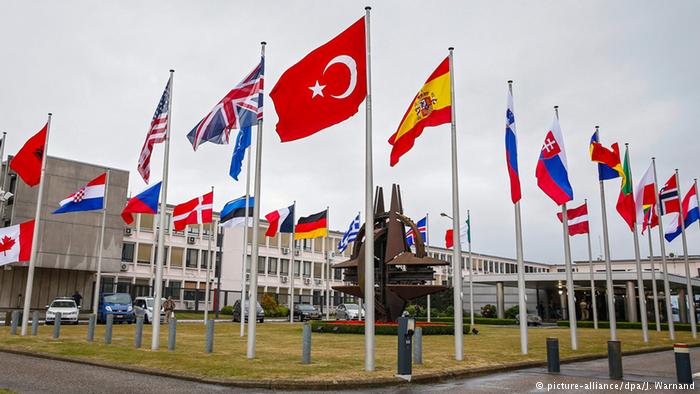 By Eugene Kogan, Tbilisi-based defence and security expert By Eugene Kogan, Tbilisi-based defence and security expert
It should be remembered that Turkey’s relations with NATO were not as smooth as perhaps some experts wished to think, even before the failed coup on 15 July 2016. For instance, back in November 2009 the AKP government was adamant that despite Turkish soldiers’ participation in the ISAF mission they were not combat troops. Turkey's position at the time irked allies in NATO and the US in particular, and it has not changed since then. READ MORE
- September 14, 2017 20:25PM
“Towards Europe?! Straddling Fault Lines and Choosing Sides in the South Caucasus” 10th Workshop of the PfP Consortium’s “Regional Stability in the South Caucasus” Study Group (RSSC SG)
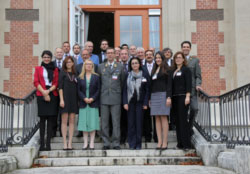 On 6-8 November, 2014, the PfPC and the Austrian National Defense Academy jointly organized the 10th Workshop of the RSSC SG at “Schloss Rothschild” in Reichenau (Austria). This workshop offered a platform for constructive dialogue among government and academic experts on the prospective roles of the EU and the Eurasian Economic Union (EEU) in breaking the current deadlocks in the resolution of the protracted conflicts in Abkhazia, South Ossetia and Nagorno-Karabakh. During this workshop, a panel moderated by George Niculescu, the Head of Research of EGF, examined the background and the potential implications from the perspectives of South Caucasus (SC) states of having to make undesirable choices between the EU and the EEU. The panelists’ presentations and the ensuing discussion highlighted that, against the backdrop of the Ukrainian crisis, maintaining freedom of choice on the ways and levels of engagement with both the EU and the EEU is a critical interest for each SC state, and a prerequisite for effective conflict resolution. In this context, Mr Niculescu thought that “the EU might work towards developing options for harmonizing the European and Eurasian integration normative systems. One of the options to be explored might involve sustaining post-conflict regional economic cooperation as a way to circumvent the dilemma of the states caught in-between competing European and Eurasian integration processes.” READ MORE. Please see the relevant post on Facebook here. On 6-8 November, 2014, the PfPC and the Austrian National Defense Academy jointly organized the 10th Workshop of the RSSC SG at “Schloss Rothschild” in Reichenau (Austria). This workshop offered a platform for constructive dialogue among government and academic experts on the prospective roles of the EU and the Eurasian Economic Union (EEU) in breaking the current deadlocks in the resolution of the protracted conflicts in Abkhazia, South Ossetia and Nagorno-Karabakh. During this workshop, a panel moderated by George Niculescu, the Head of Research of EGF, examined the background and the potential implications from the perspectives of South Caucasus (SC) states of having to make undesirable choices between the EU and the EEU. The panelists’ presentations and the ensuing discussion highlighted that, against the backdrop of the Ukrainian crisis, maintaining freedom of choice on the ways and levels of engagement with both the EU and the EEU is a critical interest for each SC state, and a prerequisite for effective conflict resolution. In this context, Mr Niculescu thought that “the EU might work towards developing options for harmonizing the European and Eurasian integration normative systems. One of the options to be explored might involve sustaining post-conflict regional economic cooperation as a way to circumvent the dilemma of the states caught in-between competing European and Eurasian integration processes.” READ MORE. Please see the relevant post on Facebook here.
- February 20, 2015 18:32PM
The Security of the South Caucasus States and NATO With the support of the Public Diplomacy Division of NATO Headquarters (Brussels) the Region Research Center (Armenia) has started the implementa- tion of the project " The Security of the South Caucasus and NATO" (December 2011 - March 2012). READ MORE
- February 28, 2012 04:08AM
Five good reasons to be sceptical about the ‘Arab Spring’  by Marat Terterov, by Marat Terterov,
EGF Director
When a game breaking event takes place in the Middle East once each decade
There is a certain understanding amongst Middle East politics experts that a game breaking event of cataclysmic proportions hits the region once every ten years or so. September of this year will mark the 10th anniversary of the unimaginable acts of terrorism which were perpetrated in New York in September 2001 by Arab suicide bombers. These acts of violence catapulted America’s ‘War on Terror’ to the centre of Washington’s foreign policy agenda, opening the way for renewed civil war in Afghanistan and the US-led invasion of Iraq of 2003. READ MORE
The Marrakesh bombings and Morocco’s precarious security environment Morocco’s stable security image shattered in April
Morocco witnessed a severe blow to its external image as one of the more stable and least dangerous North African Maghreb countries at the end of last month, when an apparent suicide bombing in the city of Marrakesh led to the deaths of 17 persons, including a number of foreign nationals. The fatal blast, which took place in a café in Marrakesh’s iconic Djemaa el-Fna square (a Unesco World Heritage site popular with European tourists) on April 28, was the first major, apparent act of terrorism in the country since the 2003 bombings in Casablanca which killed up to 45 people. READ MORE
Moscow Domodedovo airport terror act: between shallow security and social unrest Mikhail Roshchin, EGF Affiliated Expert
While many in Russia have become accustomed to gas disputes with Ukraine as the flagship event hailing in the New Year, the start of 2011 brought with it a far more tragic security crisis when a major bomb blast ripped through the crowded halls of Moscow’s Domodedovo airport. The attack occurred in the arrivals area of the airport at 4.32 pm, on 24 January 2011, claiming the lives of 36 individuals and injuring 116 more. An act of terrorism was immediately assumed by many security experts, possibly involving a suicide bomber, who employed an explosive device containing 5-7 kilogrammes of Trinitrotoluene (TNT). Among the victims was Anna Yablonskaya, a 29-years-old Ukrainian playwright and poet who had come to Moscow to receive a prize from the magazine Art of the Cinema for her recent play. This attack follows the March 2010 suicide bombing in which two women, originally from Dagestan, blew themselves up in Moscow’s underground causing the death of 40 commuters. As was the case in the March 2010 attack, separatist-terrorists from the Russian North Caucasus were suspected of involvement in the Domodedovo attacks. These suspicions appeared to be confirmed earlier this month, when Chechen rebel leader, Doku Umarov, claimed responsibility for the bombing on February 4. In his video broadcast confirming responsibility for the attack, Umarov justified his actions on the basis of Russian state policy in the North Caucasus. READ MORE
|
|